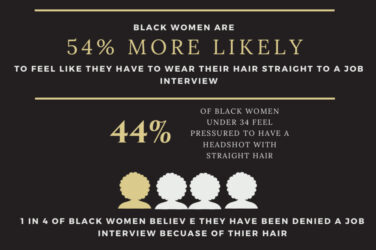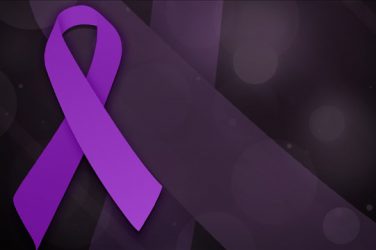Rylie Hamilton meets on Tuesday evenings with three female University of Georgia students to discuss a range of topics, from spirituality to navigating the dating sphere to test anxiety. Mental health is frequently part of the conversation.
Hamilton, whose role in the Wesley ministry is referred to as “student discipler,” said she believes many people who join any campus ministry may appear happy, but it’s often difficult to discern what’s happening beneath the surface. Students like Hamilton, who is 21, and adults in leadership roles with religious groups on campus are increasingly stepping into therapist-like positions to help students, even if they lack the qualifications to give mental health advice.
“Mental health is something that I definitely don’t want to give a wrong answer to,” Hamilton said.

In the wake of the student suicide of a male freshman student in February 2024, the University of Georgia students, faculty and staff grappled with students’ mental health, and other colleges and universities in have emphasized their resources in response to suicides and acute mental health needs. Nationally, 13% of youth reported experiencing thoughts of suicide, more than 1 in 10, compared to 5% of adults, according to the 2024 State of Mental Health in America report by Mental Health America.
The mental health of our students is a top priority,” Steve Rose, assistant director of communications and external relations for the University Health Center, said in an email.
Yet, due to limited resources and high demand, some faith-based organizations and student-led organizations are filling in gaps. While these resources provide comfort and a sense of guidance, they raise questions — even among those involved in providing counseling — about their lack of training to provide such support and the liability if students’ problems worsen.
This shift also highlights issues within traditional mental health resources available on campus, as mental health problems in students rose during the pandemic. Some students at the University of Georgia said they have encountered challenges securing an appointment with the school’s Counseling and Psychiatric Services (CAPS) and receiving immediate attention in the case of extreme emergencies. CAPS lists 36 staffers, as of early 2025, while UGA has about 40,000 students.
Many students deemed either they can’t get an appointment, or their issue is not serious enough to hold ongoing therapy appointments, said Haley Lerner, a campus minister at the Table Athens (formerly called the Presbyterian Student Center) and vice president of the University Religious Life Association.
“I certainly have experienced burnout, and I have experienced compassion fatigue,” she said. “When I am in that spot, I am not able to care for people the way that I want to.”
Needs and Responses
About 4% of individuals seek informal treatment from a “religious counselor or other religious contact,” according to a 2022-2023 data report from The Healthy Minds Study through the University of Michigan. More than 76,400 U.S. students were polled.
Similarly, in an informal Google form survey shared for this story with about 25 UGA students responding, 16% said they turned to a religious contact or religious counselor to address mental health concerns, while faculty and staff received no responses; friends and family were the top choices.
“CAPS was huge for referring me to my current therapy company a couple of years ago when I first started having mental health issues,” one UGA student wrote.
Another question that asked “How much do you know about UGA’s Counseling and Psychiatric Services (CAPS)?” garnered a wide variety of responses that echo what those involved in religious groups and student-led mental health initiatives say they hear.
- “Enough to know you can’t rely on them for anything.”
- “Nothing really apart from how long it takes to get off the waitlist.”
- “They provided an initial resource and referred me to local therapists.”
- “A little bit, I am having my first therapy appointment today actually.”
Across the country, pressure has increased on universities to bolster mental health services to meet student demand, in some cases, resorting to legal action. In Georgia, universities, including UGA, have tried to expand resources in response to needs, including tragedies. For example, after a student died by suicide in fall 2024 at the University of North Georgia, which has the second highest number of admitted transfer students to UGA for the fall 2025 semester, a video from its president provided encouragement, access to electronic mental health services and his email for students and others to contact him.
At UGA’s CAPS, students now can walk in for a complimentary screening during business hours, and CAPS clinicians are embedded in primary care clinics to help with concerns ranging from disordered eating to depression and anxiety, Rose said.
“A visit to CAPS is not the only way for students to get mental health help within the University Health Center,” Rose wrote in the email.
The health care industry as a whole is starting to move towards this model where primary care is mental health care.”
In early 2025, posts from the UGA Well Being Instagram account included a 988 suicide and crisis lifeline that students could text or call at any time for confidential and free support. “No Judgement. Just Help,” said the promotional graphic.
During this academic year, UGA students have received emails from the university advertising newer digital resources, such as free virtual counseling, anonymous peer support and the Headspace app. CAPS also offers access to five free virtual appointments; Rose said all that’s needed is a student email, and in many cases, same-day appointments are available.
Peer-to-Peer Support
Students shared they have felt compelled to advocate for more immediate and comprehensive solutions through on-campus organizations to meet their needs.
Bennett Colbert, a fourth-year financial planning major, stepped in as president for Active Minds UGA, an on-campus mental health organization that focuses on changing the culture around mental health on campus and opening conversation about resources and support networks. UGA spotlighted their efforts during the UGA-Mississippi State football game on Oct. 12, with Colbert and other Active Minds leaders standing on the field with cheers from the crowd.
“We plan to be the liaison between students and faculty/the university, in order to help those who have struggled, just like I did,” Colbert said.
In a pinned post on its Instagram account, Active Minds lists resources and phone numbers for the suicide and crisis hotline, substance abuse helpline, and the local National Alliance on Mental Illnesses group hotline.
The peer-to-peer model is “essential in not just understanding their challenges but also building solutions,” according to Mental Health America. “Youth peer support programs are essential to more quickly and holistically build community-centered, accessible, and engaging resources,” says a 2022 report.
The religious group that Hamilton participates in, Wesley, offers events such as HOPE, a discussion that brings a biblical perspective to mental health issues. Hamilton said some students find it hard to get an appointment at CAPS and some struggle with their parents supporting therapy or the expensive cost of therapy, which is “definitely a problem.”
I’m lucky enough to have insurance to help with the cost of prescriptions for anxiety and ADHD, but a lot of people don’t have that privilege,” one student wrote in the informal, anonymous survey.
About 48% of youth ages 12-17 who responded to the 2024 State of Mental Health Report selected “thought their family, friends, or religious group would not like it if they got treatment,” as a reason for not receiving mental health treatment for a major depressive episode in the past year.
Lerner notes there’s “certainly a fear and a stigma” surrounding CAPS. Counseling and psychiatric services connect with students’ health insurance, allowing parents to access their health insurance details, including appointment information, Rose said. However, not all parents or families are supportive of mental health care, which can create challenges.
Additionally, some students may seek a queer counselor or a counselor of color. At The Table, Lerner desires to offer a safe space for individuals to discuss the intersection of their faith and sexual identity through “Coffee and Queeries,” a group that supports LGBTQ+ students who identify as religious. While the program has helped students in the LGBTQ+ community, it still doesn’t fulfill the same needs as therapeutic practices.
“Spiritual care can be therapeutic, but it’s not therapy,” Lerner said.
Molly Moore is a Fink Fellow in the University of Georgia Cox Institute’s Journalism Writing Lab. The Journalism Writing Lab is part of the Mental Health Parity Collaborative, a group of newsrooms that are covering stories on mental health care access and inequities in the U.S. The partners on this project include The Carter Center and newsrooms in select states across the country.








Show Comments (0)